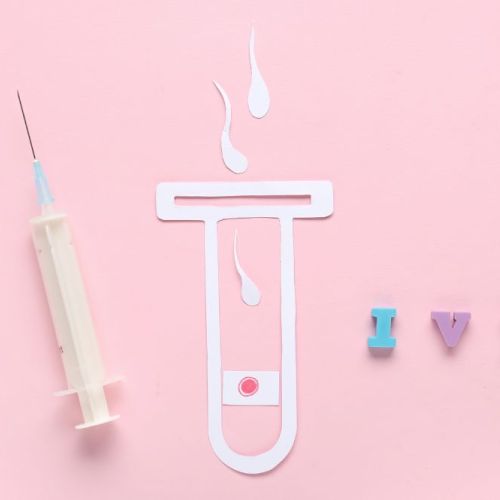ICSI: An Effective Choice When Male Fertility Issues are a Factor

There’s a common misconception that infertility is, by and large, a female problem. While it’s true that a wide variety of factors can influence a woman’s ability to conceive, male-factor infertility is a major factor in up to 40% of infertility cases.
When a sperm defect is either the main cause or a contributing cause of a couple’s fertility issues, using a more direct fertilization method known as intracytoplasmic sperm injection (ICSI) can significantly improve your chances of conceiving a healthy embryo via in vitro fertilization (IVF).
Here at California Center for Reproductive Health, we do testing for the potential contribution of male factor to a couple’s infertility right from the start. We’ve helped many couples in the Los Angeles area with male-factor infertility conceive successfully using IVF with ICSI — and here’s how it works.
Male-factor infertility
Although it can sometimes be difficult to discern whether male-factor infertility is the sole cause or one of many contributing causes of a couple’s inability to conceive, it’s estimated that sperm defects are directly responsible for about 25% of all couples’ infertility.
Male-factor infertility caused by a sperm defect usually means sperm can’t get to the egg at all, or it can get to the egg, but can’t fertilize it.
The best way to analyze sperm is with a comprehensive semen analysis, which evaluates sperm concentration, sperm motility, sperm morphology (shape), and ejaculate volume. Other important parameters include pH and the presence or absence of agglutination (clumping).
Although a diagnosis of low sperm count or poor sperm motility is a general indication of male-factor infertility, the amount of sperm you have or how fast they swim aren’t the most important things. What matters most is whether or not your sperm can actually fertilize your partner’s eggs.
The benefits of ICSI
ICSI, which is used in almost half of all IVF treatments, is the most successful treatment approach for addressing most cases of male-factor infertility.
During conventional IVF, your partner’s eggs are surgically removed and placed in a dish with your sperm sample. As long as the sample contains a large number of active, normal sperm, chances are fairly high that one of the strongest sperms in the sample will make its way into the egg to fertilize it.
When the amount of suitable sperm is limited, however, conventional IVF isn’t a good option. Instead, IVF is carried out with ICSI, a method of direct egg fertilization that drastically increases the odds of creating a viable embryo.
During IVF with ICSI, we use a specialized micromanipulation tool and an inverted microscope to select and pick up individual sperm in an ultra-fine ICSI needle. Then, after carefully advancing the needle through the egg’s outer shell and membrane, we inject the sperm into the inner part of the egg.
ICSI results in normal fertilization approximately 75-85% of the time. As with conventional IVF, the fertilized egg is monitored for quality for two to five days before it’s transferred to the woman’s uterus, in the hopes that it will continue to develop into a healthy embryo.
Customized fertility solutions you can trust
Although ICSI is mostly used to help a couple overcome male-factor infertility, it’s also an ideal solution for men who decide to start a family after undergoing an irreversible vasectomy.
ICSI can also be helpful for men who have a medical condition — such as a spinal cord injury or diabetes — that makes it very difficult or impossible to get an erection or ejaculate.
And ICSI can help improve the odds of conception for couples who’ve already undergone a standard IVF treatment without success. At California Center for Reproductive Health, our ICSI success rates — meaning the IVF with ICSI treatments that result in a live birth — consistently beat the national average.
To find out more about ICSI, call today or schedule an appointment online at one of our clinics in Encino, West Hollywood, Monica, or Valencia, California.
Eliran Mor, MD
Reproductive Endocrinologist located in Encino, Valencia & West Hollywood, CA
FAQ
What does a reproductive endocrinologist and infertility specialist do?
Reproductive endocrinology and Infertility is a sub-specialty of Obstetrics and Gynecology. In addition to managing medical and surgical treatment of disorders of the female reproductive tract, reproductive endocrinologist and infertility (REI) specialists undergo additional years of training to provide fertility treatments using assisted reproductive technology (ART) such as in vitro fertilization.
Reproductive endocrinologists receive board certification by the American Board of Obstetrics and Gynecology in both Obstetrics and Gynecology and Reproductive Endocrinology and Infertility.
When should I see an REI specialist?
In general, patients should consider consulting with an REI specialist after one year of trying unsuccessfully to achieve pregnancy. The chance of conceiving every month is around 20%, therefore after a full year of trying approximately 15% of couples will still not have achieved a pregnancy.
However, if a woman is over the age of 35 it would be reasonable to see a fertility specialist earlier, typically after 6 months of trying.
Other candidates to seek earlier treatment are women who have irregular menses, endometriosis, fibroids, polycystic ovary syndrome (PCOS), women who have had 2 or more miscarriages, or problems with the fallopian tubes (prior ectopic pregnancy).
What are the reasons we are having trouble conceiving?
Approximately 1/3 of the time cause for infertility is a female factor, 1/3 of the time a male factor, and the remaining 1/3 a couples’ factor.
At CCRH, we emphasize the importance of establishing a correct diagnosis. Both partners undergo a comprehensive evaluation including a medical history and physical exam.
Furthremore, the woman’s ovarian reserve is assessed with a pelvic ultrasound and a hormonal profile. A hysterosalpingogram (HSG) will confirm fallopian tube patency and the uterine cavity is free of intracavitary lesions. A semen analysis is also obtained to evaluate for concentration, motility, and morphology of the sperm.
Additional work up is then individualized to direct the best possible treatment option for each couple.
What is IVF? What is the process like?
In vitro fertilization (IVF) is the process that involves fertilization of an egg outside of a woman’s body.
The process starts with fertility drugs prescribed to help stimulate egg development. In your natural cycle, your body is only able to grow one dominant egg, but with stimulation medication we can recruit multiple eggs to continue to grow. After about 8-10 days of stimulation, the eggs are surgically retrieved and then fertilized with sperm in a specialized laboratory. Fertilized eggs are then cultured under a strictly controlled environment within specialized incubators in the IVF laboratory for 3-5 days while they develop as embryos. Finally, embryos (or an embryo) are transferred into the uterine cavity for implantation.
Should I have IVF?
Before deciding if IVF is the right choice, it’s important to sit down with an REI specialist to discuss available treatment options. For some people, other methods such as fertility drugs, intrauterine insemination (IUI) may be the best first choice treatment. At CCRH, we believe each individual couple is unique and not everyone needs IVF.
Is the IVF procedure painful?
While not painful, the fertility medications may some side effects including headaches, hot flashes, mood swings, and bloating. The injection sites may also bruise.
Will IVF guarantee a baby?
Unfortunately, no. Many people think once they start IVF it’s a matter of time that they will be pregnant and have a baby. But according to national statistics per the Society of Assisted Reproduction (SART), on average 40% of assisted reproduction cycles achieve live births in women under age 35. The chances of success then continue to decrease with advancing age.
At CCRH, we employ only evidence-based interventions to ensure patient safety and optimal outcome. While we cannot guarantee a baby, we guarantee that you will receive the best, most advanced, personalized care to help you maximize your chance of a baby.
What is the success rate for IVF?
The average IVF success rate (success measured in live birth rate) using one’s own eggs begins to drop around age 35 and then rapidly after age 40. This is due to the decline in egg quantity and egg quality as a woman ages.
Our clinic’s success rate consistently beats the national average year after year.
Do insurance plans cover infertility treatment? How much does IVF cost?
Individual insurance plans often do not have any coverage for infertility treatments. If you have a group plan, you can call members services to see if they have coverage for infertility (including consultation/workup and IVF).
After your consultation with our REI specialist, one of our dedicated account managers with sit with you to go over the cost of treatment.




